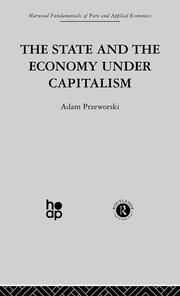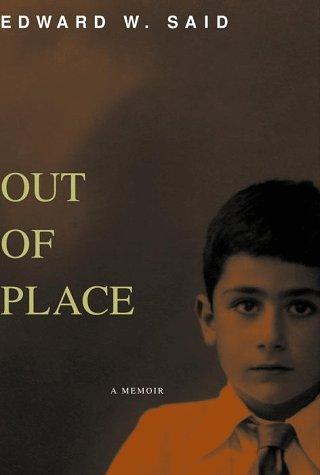By Ron Liskey | December 2, 2019
Winston Churchill
Winston Churchill is remembered by the people of England for leading Britain through “her finest hour,” and by most of the rest of the world as a murderous racist. Besides rousing a reluctant nation to war, he championed imperialism, white supremacism, the carpet bombing of cilivian cities, and networks of terrorizing concentration camps.
Perhaps ignorant of Churchill’s legacy, and in an attempt to disassociate himself from his own draft-dodging past, President-Select George W Bush placed a bust of Churchill near his desk in the White House.
President Obama had the bust returned to Britain. Possessing a longer historical perspective, he had not forgotten that his own Kenyan grandfather, Hussein Onyango Obama, had been imprisoned without trial for two years and was tortured on Churchill’s watch for resisting the British Empire’s imperial designs on Kenya.
Churchill had hoped to drive hundreds of thousands of Kenyas off Kenya’s best lands and turn them over to invading white farmers.
Winston’s doctor Lord Moran once said, “Winston thinks only of the color of their skin.”
Was Churchill a racist? Does defeating the equally blatant racist Adolf Hitler excuse Churchill’s own racism?
More information
- Britain’s Gulag: The Brutal End of Empire in Kenya, by Caroline Elkins
- Britain’s Gulag: Book Review, by A. Clare Brandabur, Ph.D.
Colonizing India
I hate Indians. They are a beastly people with a beastly religion.
Churchill quoted in Churchill’s Empire
[India is] a godless land of snobs and bores.
Churchill in a letter to his mother, 1896
I am strongly in favor of using poisoned gas against uncivilized tribes [in northern India]... The objections of the India Office to the use of gas against natives are unreasonable. Gas is a more merciful weapon than [the] high explosive shell, and compels an enemy to accept a decision with less loss of life than any other agency of war... Why is it not fair for a British artilleryman to fire a shell which makes the said native sneeze? It is really too silly.
Churchill writing in Great Contemporaries, 1937
Gassing the Kurds
I do not understand the squeamishness about the use of gas. I am strongly in favor of using poisonous gas against uncivilized tribes.
Churchill writing as president of the Air Council, 1919
Anti-Communism and Anti-Semitism
This movement among the Jews is not new. From the days of Spartacus-Weishaupt to those of Karl Marx, and down to Trotsky (Russia), Bela Kun (Hungary), Rosa Luxembourg (Germany), and Emma Goldman (United States)... this worldwide conspiracy for the overthrow of civilization and for the reconstitution of society on the basis of arrested development, of envious malevolence, and impossible equality, has been steadily growing. It has been the mainspring of every subversive movement during the 19th century; and now at last this band of extraordinary personalities from the underworld of the great cities of Europe and America have gripped the Russian people by the hair of their heads and have become practically the undisputed masters of that enormous empire."
Churchill quoted in 'Zionism versus Bolshevism', Illustrated Sunday Herald, February 1920
[We must rally against] a poisoned Russia, an infected Russia of armed hordes not only smiting with bayonet and cannon, but accompanied and preceded by swarms of typhus-bearing vermin.
Churchill. Boston Review, April/May 2001
Colonizing Ireland
The choice was clearly open: crush them with vain and unstinted force, or try to give them what they want. These were the only alternatives and most people were unprepared for either. Here indeed was the Irish specter - horrid and inexorcisable.
Churchill. The World Crisis and the Aftermath, 1923-31
European Colonial Wars (World War II)
I will not pretend that, if I had to choose between communism and nazism, I would choose communism.
Churchill speaking in the House of Commons, Autumn 1937
One may dislike Hitler's system and yet admire his patriotic achievement. If our country were defeated, I hope we should find a champion as admirable to restore our courage and lead us back to our place among the nations.
Winston Churchill'S Shocking Use of Chemical Weapons, Sept 1, 2013
It is alarming and nauseating to see Mr Gandhi, a seditious Middle Temple lawyer, now posing as a fakir of a type well known in the east, striding half naked up the steps of the viceregal palace, while he is still organizing and conducting a campaign of civil disobedience, to parlay on equal terms with the representative of the Emperor-King.
Churchill commenting on Gandhi's meeting with the Viceroy of India, 1931
White Supremacy and Racism
The unnatural and increasingly rapid growth of the feeble-minded and insane classes, coupled as it is with a steady restriction among all the thrifty, energetic and superior stocks, constitutes a national and race danger which it is impossible to exaggerate... I feel that the source from which the stream of madness is fed should be cut off and sealed up before another year has passed.
Churchill to Asquith, 1910
I do not admit... that a great wrong has been done to the Red Indians of America, or the black people of Australia... by the fact that a stronger race, a higher grade race... has come in and taken its place.
Churchill to Palestine Royal Commission, 1937








